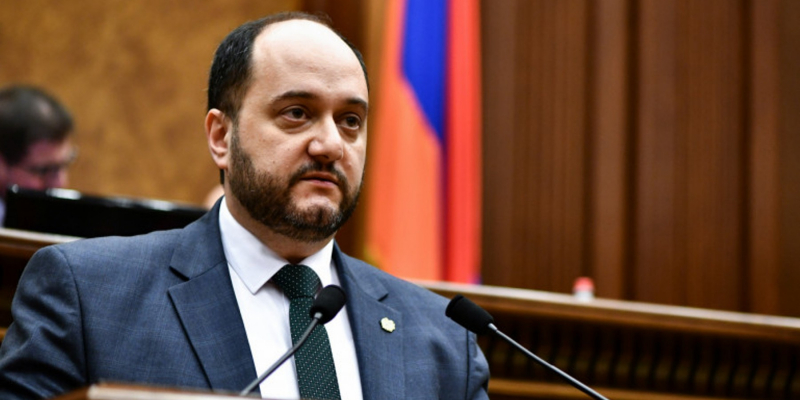The National Assembly discussed the draft of the bills on “Amendments and Additions to the RA Law on “General Education” and on “Amendments to the RA Law on Local Self-Government in Yerevan”, as well as the issue of their adoption in the second reading.
RA Minister of Education, Science, Culture and Sports Arayik Harutyunyan presented the main changes from the first to the second reading, noting that rather effective discussions were held in the NA Standing Committee on Science, Education, Culture, Diaspora, Youth and Sports.
According to the Minister, one of the key issues is related to distance education, and since all factions are concerned about this wording, the Ministry revised this provision so that distance education can be considered as a form of educational program. “An alternative option was excluded to prevent schools from completely switching to distance education if there is a chance to recruit a new specialist. Distance education, in the implementation of basic general educational programs, can be implied in exceptional cases and within certain deadlines established by the authorized body of state administration of education,” Arayik Harutyunyan specified, and added that if the teacher’s competition was organized twice and there were no applicants for this position or the competition hasn’t been held, distance education can be implemented until a teacher is selected within the competition.
The next change regards pedagogical, parental and student councils, which can participate in the process of selecting a school director, thereby enhancing their role, by the order approved by the RA Government.
In school admission, priority will be given to those children who have a sibling in the corresponding school, as well as to the children of school staff, taking into account the main complaints regarding the admission of the previous year.
The nominations for the title “Best Teacher, Director and Teacher of the Year” were changed, and “Best Nominee of the Year” was defined. It was established that the credit system will be implemented only in grades 10-12.
Under the project, the state educational authority was instructed to determine the name of state educational institutions, the organization of daily education in general educational institutions, the order of identification of children who do not receive compulsory education and the development of ethical standards for administrative and teaching personnel, students and parents.

